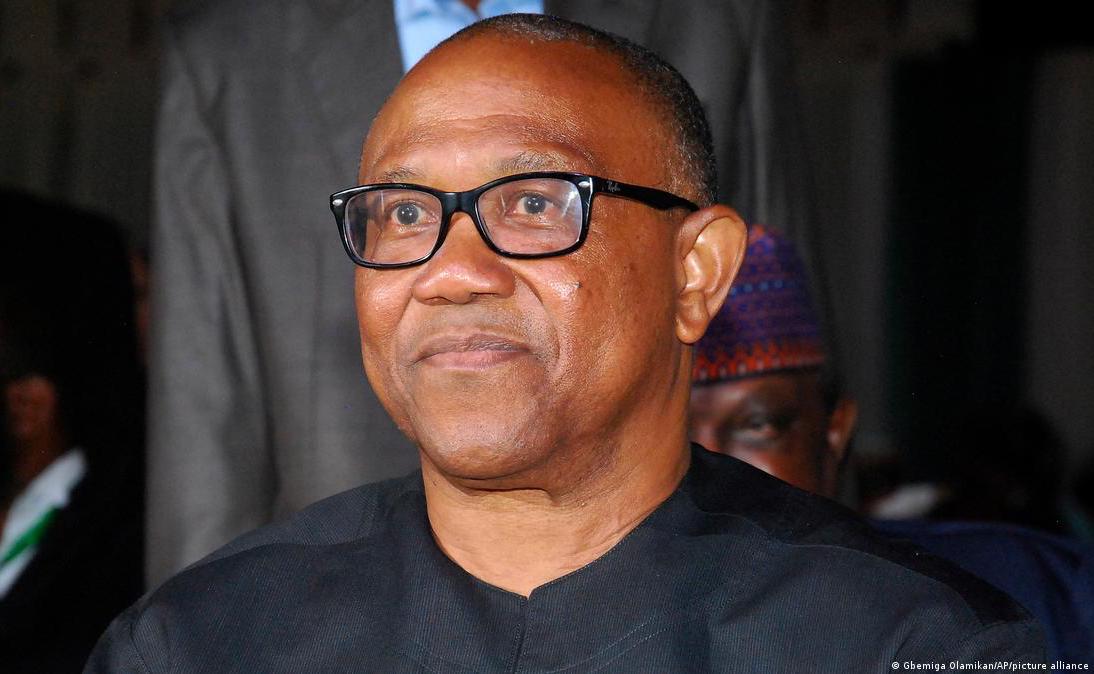693
By Daniel Adaji
The Federal Ministry of Marine and Blue Economy has refuted claims made by former Anambra State Governor, Mr Peter Obi, regarding the Federal Government’s $1 billion port modernisation project, insisting that the initiative is part of a broader, nationwide strategy — not limited to Lagos.
In a statement signed by Dr Bolaji Akinola, Special Adviser to the Minister, the Ministry described Obi’s recent comments as “misleading,” stressing that the ongoing modernisation of Apapa and TinCan Island Ports is only one component of a coordinated effort to revitalise ports across Nigeria.
The former governor and 2023 presidential candidate, had called on the Federal Government to diversify port development beyond Lagos following the approval of $1 billion (approximately ₦1.5 trillion) for the modernisation of the Apapa and TinCan Island Ports.
Obi made the call via a statement on his official X account on Friday, emphasising the need for equitable infrastructure investment across Nigeria’s maritime sector. He argued that other strategic ports — including Warri, Port Harcourt, Calabar, and Onne — remain underdeveloped despite their potential to stimulate regional economies, create jobs, and ease congestion in Lagos.
“I have noted the Federal Government’s recent approval of $1 billion (₦1.5 trillion) for the modernisation of the Apapa and TinCan Island Ports in Lagos. While any effort to improve efficiency and embrace technology in our maritime sector is commendable, such an initiative must be guided by accountability, transparency, and equity for all Nigerians. However, this development once again exposes a longstanding concentration of our port development only in Lagos.
“Nigeria’s infrastructure investment remains excessively concentrated in Lagos, often at the expense of other strategic ports such as Warri, Port Harcourt, Calabar, and Onne. If fully developed, these ports could enhance productivity, drive trade, create jobs, and open new economic corridors that would lift millions out of poverty across the federation,” the statement read in part.
Obi highlighted examples from other countries with decentralised port systems, citing Vietnam’s 300 ports, Indonesia’s 111 commercial ports, and South Africa’s eight major seaports. He observed that these nations benefit from nationwide connectivity, improved logistics, and balanced economic growth. Even Ghana, with only two major ports, ensures geographical balance to maximise efficiency.
He further stressed that beyond physical infrastructure, reforms must address corruption, reduce bureaucracy, and embrace technology to create a seamless, paperless port system that improves turnaround times and competitiveness. Obi noted that if prudently managed, the Lagos modernisation project could serve as a model for wider maritime transformation.
He called for fairness and equity in Nigeria’s infrastructure planning, arguing that a truly national blue economy must involve every region and shift the country from one driven by consumption to one focused on production and shared prosperity.
Reacting to the criticism, the Minister of Marine and Blue Economy, Dr Adegboyega Oyetola, stated that the Federal Government’s port development strategy is “comprehensive and inclusive,” encompassing ports in Warri, Port Harcourt, Calabar, and Onne alongside those in Lagos.
“The Ministry has already commenced the procurement process for the renovation and modernisation of the ports in Warri, Port Harcourt, Calabar, and Onne,” the statement noted, reaffirming that these projects are part of a national infrastructure plan to expand maritime operations in every region.
Beyond rehabilitating existing facilities, the Ministry disclosed that it is partnering with state governments and private investors to develop new deep seaports that will further boost Nigeria’s maritime capacity.
Among these are the Agge Deep Seaport in Bayelsa State, the Ibom Deep Seaport in Akwa Ibom State, the Bonny Deep Seaport in Rivers State, and another deep seaport planned for Cross River State. Each of these, the Ministry said, underscores the Federal Government’s “commitment to balanced development and regional economic inclusion” in line with the objectives of the blue economy.
The Ministry also cited the Onitsha River Port in Anambra State — developed by the National Inland Waterways Authority (NIWA), an agency under the Ministry — as tangible proof of efforts to decentralise port operations and expand access beyond Lagos.
It described the port’s activation as part of “a deliberate and strategic approach to strengthening Nigeria’s port network, improving logistics efficiency, and stimulating industrial and commercial growth across the federation.”
While acknowledging the significance of the Lagos ports, the Ministry maintained that the $1 billion modernisation project is necessary due to the age and volume of trade handled through Apapa and TinCan Island Ports. It clarified, however, that these interventions do not come at the expense of other regions.
“The Lagos ports modernisation project is a necessary intervention given the age and scale of trade handled through Apapa and TinCan Island. However, it is by no means the sole focus of the Federal Government’s maritime infrastructure drive,” the Ministry stated.
Reaffirming its commitment to fairness, the Ministry declared that “Mr Peter Obi’s claim suggesting neglect of ports outside Lagos is incorrect and misleading.”
It stressed that the Federal Government’s port development policies are guided by President Bola Ahmed Tinubu’s Renewed Hope Agenda, which promotes national food security, economic diversification, and regional prosperity through the sustainable development of the marine and blue economy.
“The Ministry remains committed to transparent, accountable, and equitable maritime governance,” the statement read, assuring Nigerians that “ongoing reforms will ensure every region of the country benefits from the opportunities inherent in the nation’s growing blue economy.”



